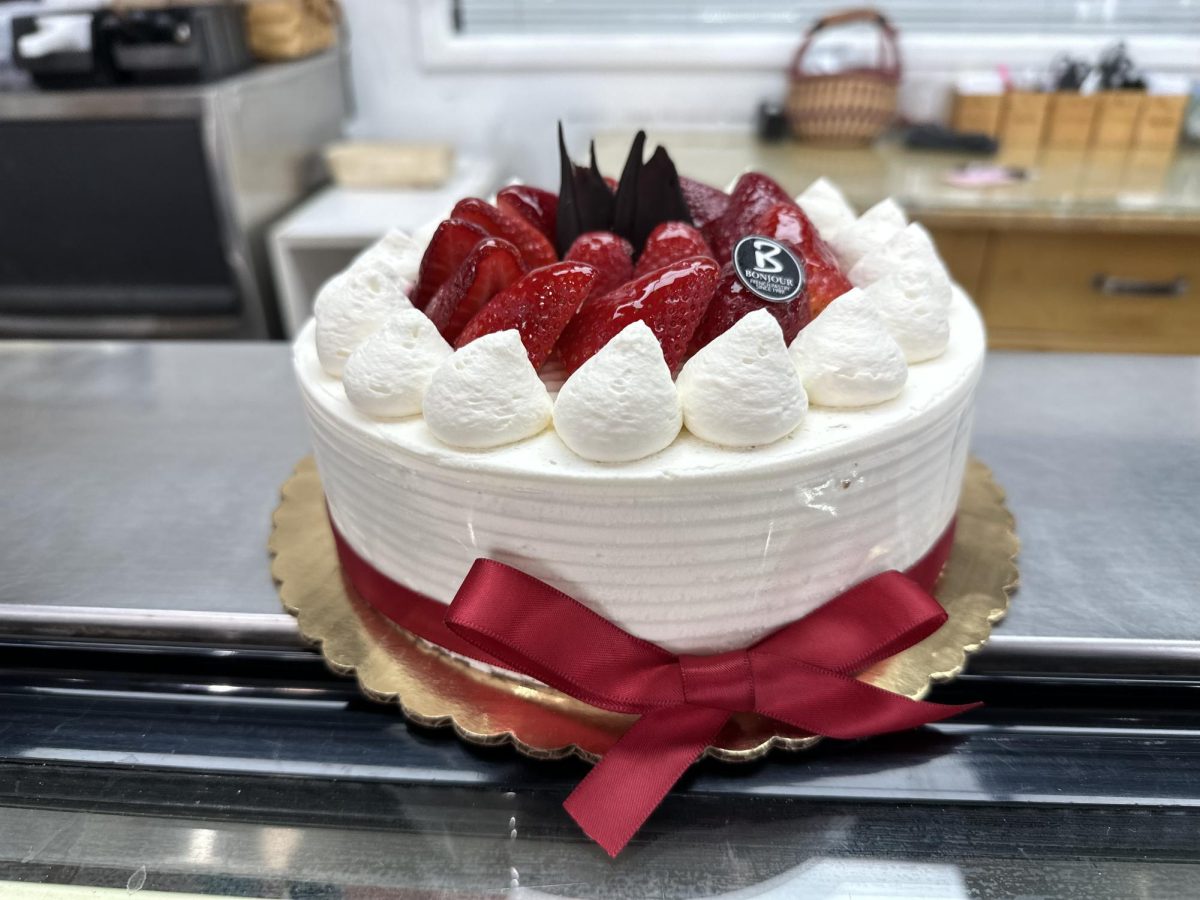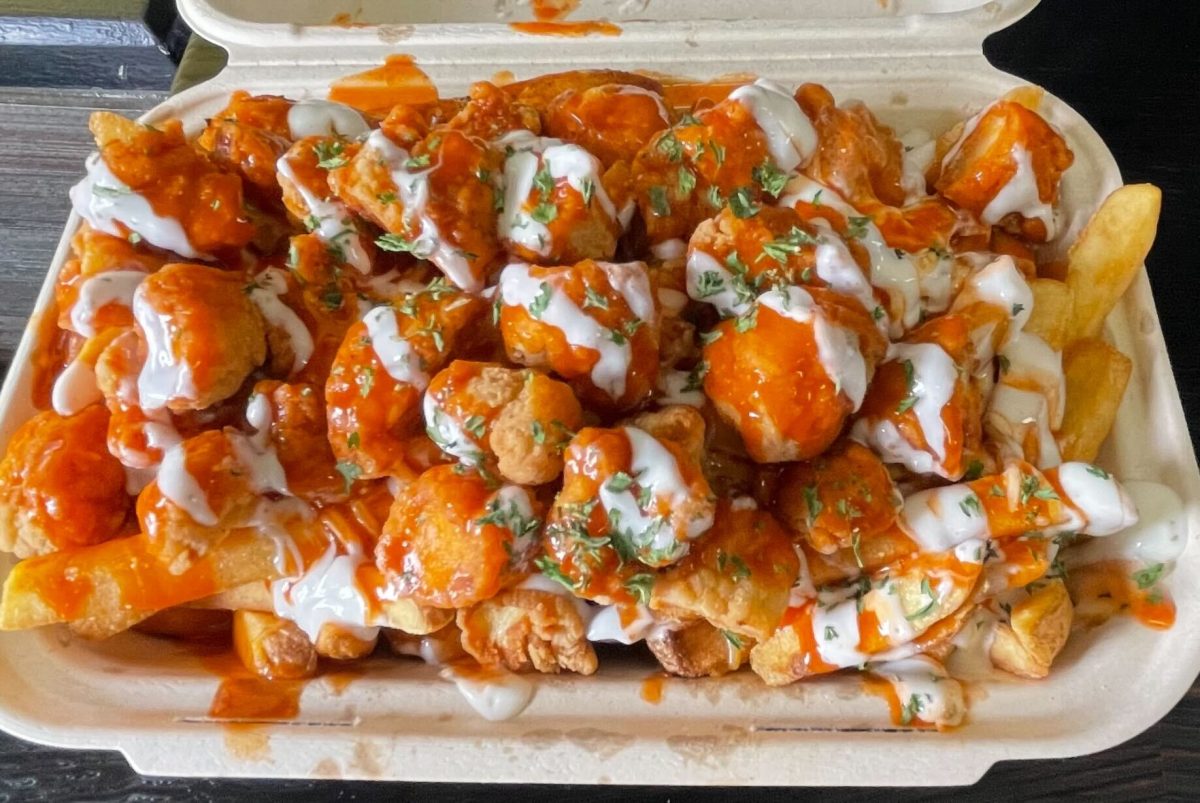High tech video games, Asian films and animes such as Pokemon and Yu-Gi-Oh have contributed to the growing fascination with Asian cultures.
Asian character tattoos have become the most recent trend to gain popularity.
The appeal of the characters may come from the mysteriousness of the cultures.
“I think young people are puzzled by it and became interested in the characters,” EC Japanese instructor Takiko Morimoto said.
Media and subculture have strongly influenced today’s youth into exploring the characters.
Twenty years ago, business partnerships used to be the main reason Americans wanted to learn the Japanese language.
Passion about the mysterious culture not only allowed people to understand, but has also opened the door for people to misinterpret it.
Cultures turn to trends
Celebrities often start many popular trends and are copied by their fans.
Teenage pop idol Britney Spears decided to get a Japanese character tattoo meaning “mysterious” on her hip, but instead ended up accidently getting a character meaning “strange” instead.
This mistake was made because she did not properly research the character before getting it.
Later on she got a tattoo that she thought had the Hebrew words meaning “new era” or “new year” but instead placed the letters incorrectly and it has no meaning.
Similar mistakes have been occurring among youth, due to the lack of the knowledge of the language or bad translations by tattoo artists.
Jane Lee of Torrance is Korean -American and has a tattoo of a Japanese character.
“I just thought the design was nice, and I’ve always been interested in Japanese calligraphy,” Lee said. “I didn’t research it because I thought I would know what I wanted by looking at characters once I went in.”
Lee has studied the Japanese language and was able to choose her character without having to rely on the tattooist’s translation.
“It’s supposed to mean a little tiger or tiger stripe,”Lee said. “The tattooist knew it meant something like a tiger, but he could not really figure out the actual meaning.”
Many people who get Asian character tattoos are fascinated by the enigmatic drawing-like script.
“Someone who doesn’t know the language can just be attracted to the symbols because Japanese or Chinese character writing looks beautiful and intriguing,” art instructor Connie Fitzsimons said.
Sayaka Ito, 19, design major, is Japanese and gets frustrated that people often misinterpret the characters.
“People tend to assume that every kanji character has a specific meaning,” Ito said. “Most kanji characters have multiple meanings, so people should be more careful.”
Not trendy for all
It’s trendy for Americans to have an Asian character tattoo, but it’s not the same for an Asian to have his own character tattoo.
“People think it’s cool to have an Asian tattoo just because it’s an Asian character, like Japanese think it’s cool to have English letters,” Ito said. “So, if a Japanese person sees someone who has a Japanese tattoo, they think it’s out of style.”
In Japan, many people still consider tattoos symbols of the the Japanese underworld or the yakuza.
Most Japanese choose to get small tattoos that can be hidden and rarely get Asian characters.
According to the Japan Times, the most popular kanji tattoos for American women are “Love” and “Beauty,” and for men, “Dragon,” “Tiger,” and zodiac signs.
Some clients elect to have their first names translated into kanji even if they don’t make sense.
Ito said she feels ashamed when she sees someone who has a misinterpreted tattoo.
“I feel sad as a Japanese (person) that people get a tattoo just because it looks good, but are not aware of the misuse,” Ito said. “I feel like teaching them the correct letters.”
For some people,the act of putting a tattoo on their body is very meaningful.
Noah Webb, an EC art instructor, has had a Japanese character tattoo meaning “calm” for seven years.
“It’s a reminder of a specific time in my life and for me to remain calm,” Webb said.
His name, Noah, shares the same meaning as his Japanese tattoo, to be calm.
“I like the connection between my name and the tattoo,” Webb said. “People who don’t have any understanding of what they are putting on their bodies make no sense to me.”
Justin Rightsell, 25, photography major, has two big dragon tattoos on his back, which represent the duality of life: love and hate.
“For me, tattooing is a way of expressing deep meanings in my life and a reminder for what’s really important to me,” Rightsell said. “My whole tattoo pieced together sybolizes how they are necessary for life to survive and flourish.”
Rightsell was told by his girlfriend, who worked for a tattoo shop, that most of the time, translation of kanji doesn’t come out as it was intended.
Tattoo artists have been getting many young people asking for Japanese or Chinese characters, but many times neither of them knows what they are doing.
“I guess tattooists are sitting back and just letting them do it,” Rightsell said. “Tattoo artists are basically there just to tattoo; I think it’s not their responsibility to make sure people know what they are getting.”
Many people forget the fact that tattoos are permanent, not just a fad. If you make a mistake, it’s something you’ll have to live with for a while.
“Some people permanently alter their bodies for the rest of their lives with a symbol that they know nothing about. I think it’s just the most brave form of ignorance,” Rightsell said. “It’s humorous, but sad at the same time.”
Many people believe that research means just finding something on the Internet or asking someone in an Asian restaurant.
Other cultural trends
Be sure to consider the source. If that person doesn’t know what they are talking about or doesn’t like the idea of the tattoo, they can just as easily give the wrong characters.
Americans aren’t the only ones who make this mistake when trying to absorb other cultures.
“Especially in the ’80s, Japanese had a lot of T-shirts written in English. Some of them were correct English, but some were strange,” Morimoto said. “People didn’t think about what they meant. It was just something cool.”
A website called Engrish.com features photos and products that misuse the English language.
Both cultures are guilty of misinterpretation and lack of understanding.
Fitzsimons said she believes that it is OK to be curious and to misinterpret another cultures for awhile but not too long.
“People in the culture might find it ironic when they see somebody borrowing their stuff, but clearly not knowing how to use it or its meaning. I think it can be a little bit offensive,” Fitzsimons said.
If you fail to at least try to understand the culture, by learning about the characters then you aren’t respecting it.
“At the same time, when we are in other cultures, we are innocent, ignorant, and naive, but we are curious. However, at some point, we should show some respect, investigate the culture, and find out something,” Fitzsimons said.
Trend facts
In Pittsburgh, tattoo artist Andy Sakai tattoed various profanities on people because he was angered that it wasn’t meaningful to them and that they did it to only be cool.
In the Japanese language, there are three alphabets katakana, hiragana and kanji. Kanji is the form that most people use for tattoos.
Cosplay.com is a popular website where many American and Japanese people post photos of themselves dressed up as their favorite anime characters by making their own costumes.
Engrish.com is a popular site that features photos and phrases that are misinterpreted in English and have been misused by other cultures.
Japanese and Chinese characters are very complex. If you change one stroke it will alter the meaning of the word.
In Japan, a popular trend is for Japanese school girls to use sock glue around their calves to secure oversized knee socks they wear with their school uniforms.
” Yamanbas” are Japanese girls who are known for their unique style of make-up and hair: Deep, artificial-looking tanned faces with white eye shadow, white lipstick and bleached white hair.
-Source Asianweek.com and Asiaweek.com





